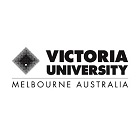Bachelor of Engineering (Honours) (Electrical and Electronic Engineering)
Bachelor of Engineering (Honours) (Electrical and Electronic Engineering)
Launch your career in electronic design, power generation or communication technology, studying one of the largest and most in-demand areas of engineering. The Bachelor of Engineering (Honours) (Electrical and Electronic Engineering) will help you gain the practical and problem-solving skills needed to become an electrical or electronic engineer. Our engineering…
Categories
COURSE DESCRIPTION
Launch your career in electronic design, power generation or communication technology, studying one of the largest and most in-demand areas of engineering.
The Bachelor of Engineering (Honours) (Electrical and Electronic Engineering) will help you gain the practical and problem-solving skills needed to become an electrical or electronic engineer.
Our engineering degree offers lab work and industry experience, ensuring you’re job-ready when you graduate.
You can specialise in telecommunications, power systems or embedded systems. These areas need qualified professionals, and there is a high demand for our graduates.
Electrical and electronic engineers work in these areas:
- electricity generation and distribution
- smart-grid design – communication, control, and automation technologies
- renewable energy systems – designing photovoltaic, wind and biomass systems
- electricity supply work – power systems analysis, protection, operations, reliability, maintenance, and management
- electronic equipment design
- industrial manufacturing plants and substation management
- communications infrastructure design – for telephones, radio, TV and the internet
- microprocessor-based embedded systems – design and programming.
Careers in electronic engineering
VU’s electronic and electrical engineering graduates are recognised in the industry as accredited engineers with the skills to develop creative and innovative solutions to engineering problems. Through laboratory experimentation and work placements, you’ll gain the practical knowledge and ability to hit the ground running.
Job titles
- electrical engineer
- electronic engineer
- communications engineer
- power engineer
- telecommunications engineer
- embedded software engineer
Course structure
To attain the Bachelor of Engineering (Honours) (Electrical and Electronic Engineering), students will be required to complete 384 credit points consisting of:
- 96 credit points of First Year Core studies;
288 credit points of Professional Core Engineering units, and;
Students are required to produce documented evidence of the completion of 12 weeks professional experience.
Accreditation:
This program is accredited by Engineers Australia and graduates are eligible to apply for graduate membership.
First Class Honours:
To be eligible for completion with First Class Honours student must achieve:
- A minimum weighted average of 60% over year levels 1 to 3;
- A minimum weighted average of 80% in year level 4;
- A HD grade for the final year NEF4202 Capstone Project 2.
REQUIREMENTS
Completion of an Australian Senior Secondary Certificate (VCE or equivalent) including Units 3 and 4: a study score of at least 25 in English (EAL) or 20 in any other English (or equivalent). PLUS: Units 3 and 4 with a study score of 20 in Mathematics (any) (or equivalent). OR: Completion of an Australian Advanced Diploma or Diploma (or equivalent). OR: Completion of a Foundation course or equivalent.
English language requirements
IELTS (Academic module): Overall score of 6.0 (no band less than 6.0)
TOEFL Internet: Overall score of 67 (Listening 12, Speaking 18, Reading 15, Writing 21)
Pearson Test of English (PTE): Overall score of 50 (no section score less than 50)
University of Cambridge – Advanced (CAE): Overall score of 169. No individual band less than 169.
VU English – English for Academic Purposes (EAP) (Level 4): achieved.
EDUCATIONAL INSTITUTION
Victoria University (VU) is an educational provider offering internationally-recognised, world-class qualifications in Melbourne and Sydney – two of the world’s most liveable cities. Its industry-focused courses cover a diverse range of subject areas and many are offered as pathways across multiple levels of education. Students can also choose to study foundation studies and English language courses through its highly-ranked English language centre. Ranking in the top 2% of universities worldwide (Times Higher Education World University Rankings 2021), VU has more than 100 years of experience and over 4,000 partnerships and connections with industry.




